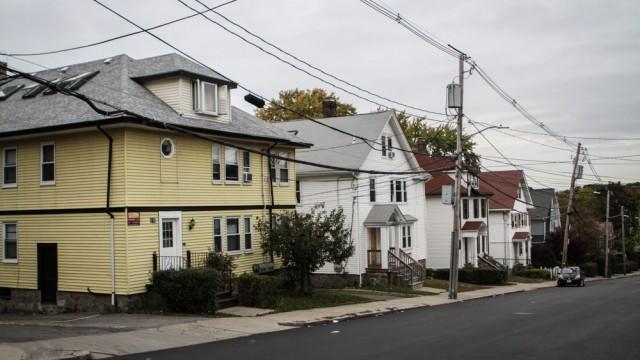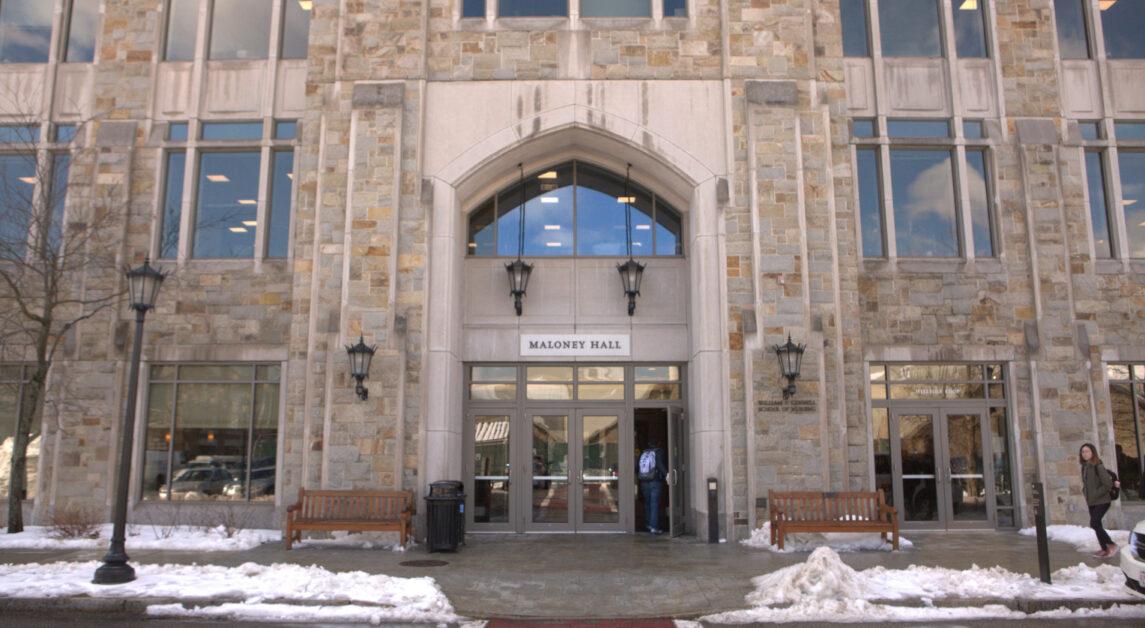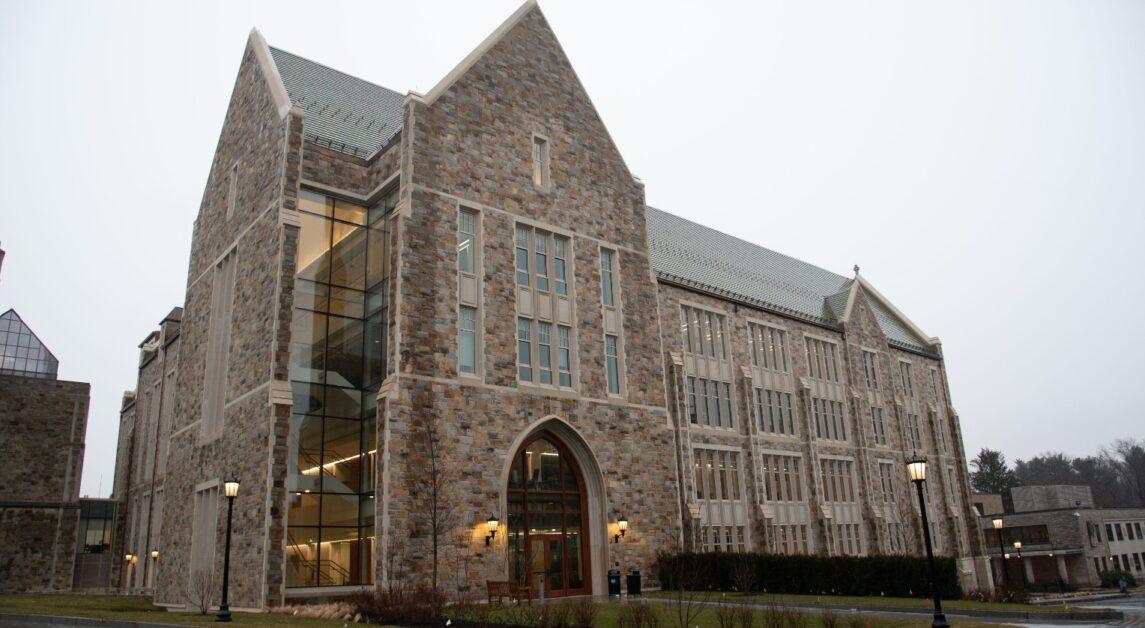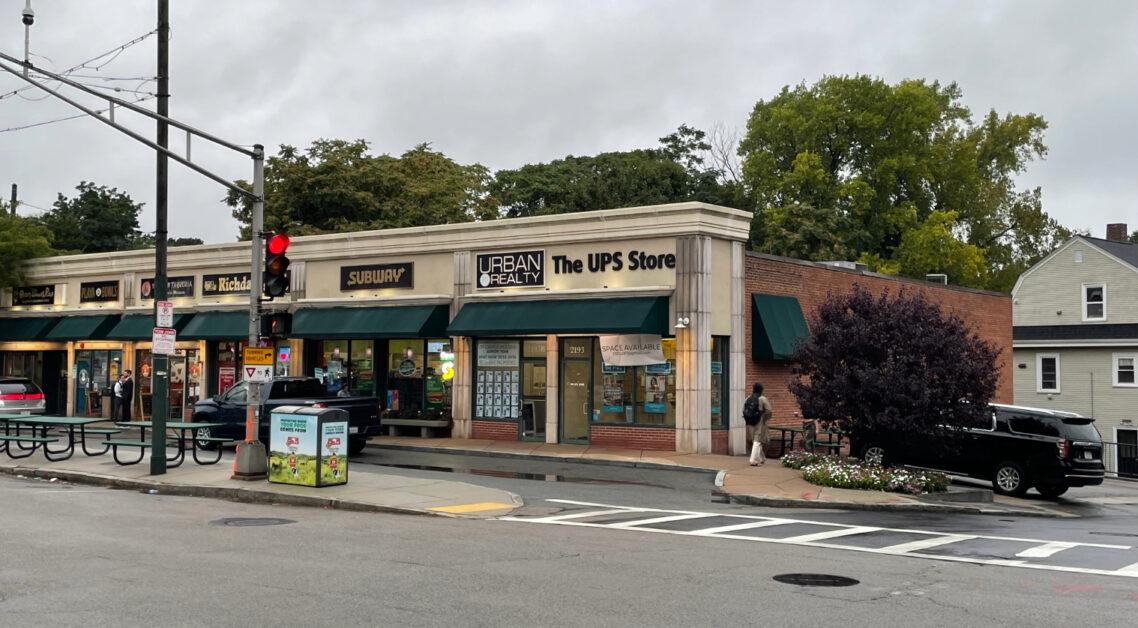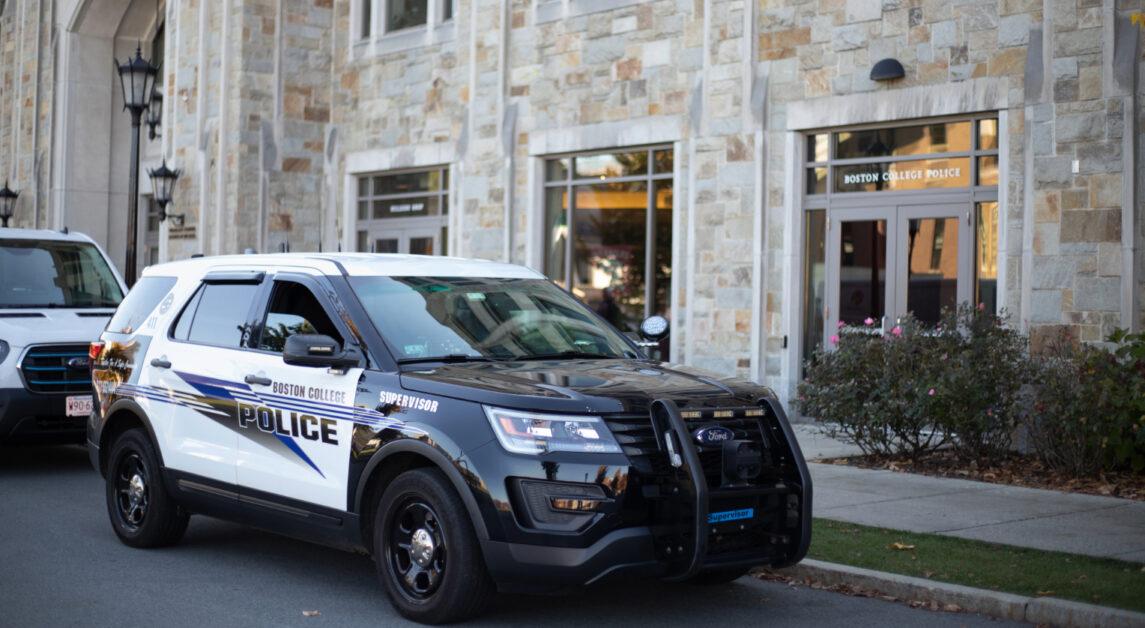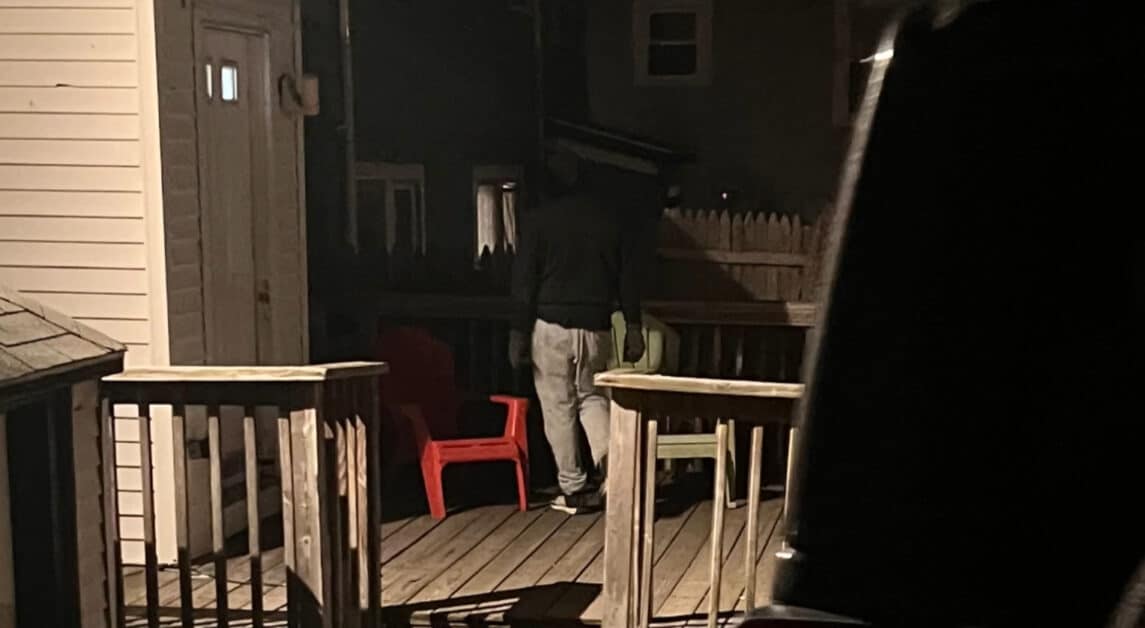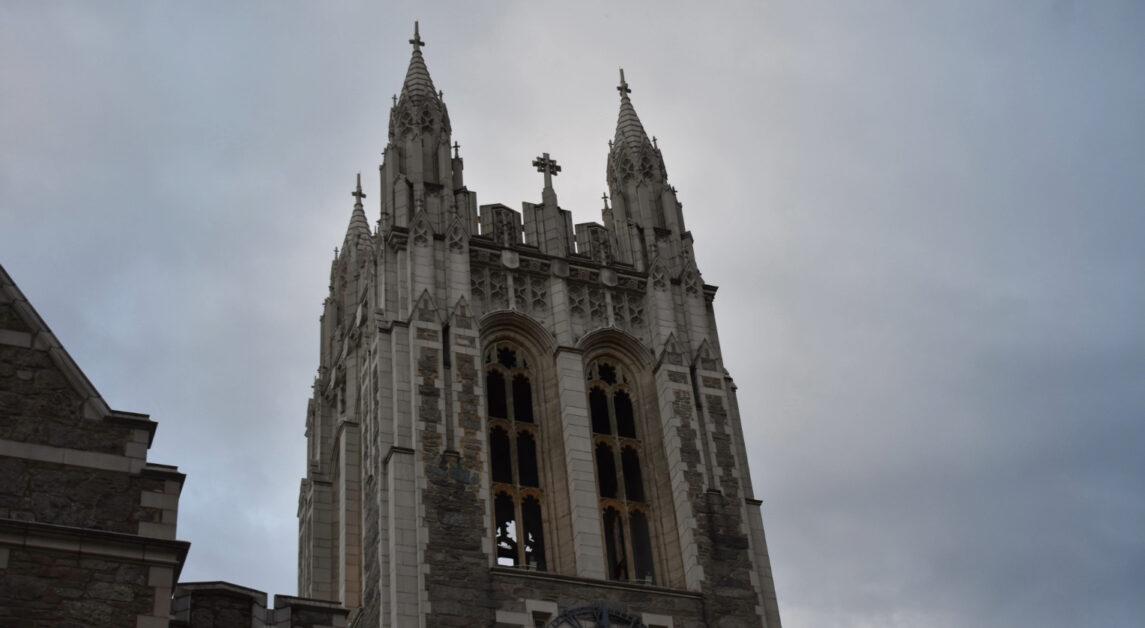Casey Doyle, CSOM ’17, who lives on Foster Street, said that an intruder entered her house while she and her roommates were upstairs watching The Bachelor. When one of her roommates went downstairs just after 10 p.m., she found a man standing in their house holding three laptops. He ran out the backdoor when she screamed. They believe that he entered through the back door, which was unlocked.
Later that night, the girls thought they heard someone in their basement and called the Boston College Police Department to do a sweep of their house. BCPD responded that they needed to contact the Boston Police Department (BPD) instead.
Since Dec. 15, there have been 27 reported break ins around the off-campus community, according to a letter sent to the off-campus community by the Boston Police Department this week. In the past two weeks, the BPD reported five break-ins, four of which were this week—62 Kirkwood on Feb. 28, 288 Foster St. on Mar. 12, 235 Foster and 311 Foster on Mar. 13, and 290 Foster St. on Mar. 14.
“Investigations into these incidents are active and ongoing,” Stephen McNulty, a spokesperson for the BPD, said in an email. “District D-14 detectives will use all available investigative resources to identify persons of interest and ask any members of the public to report any suspicious activity in the area.”
Doyle explained her frustration with BCPD’s unwillingness to respond to their call. She also wishes that BC would have released more information about the break-ins that occurred prior to their own.
Now, the girls always lock the door, even when they are home.
At the beginning of the spring semester, Alexander Bendo, MCAS ’17, said, a man entered his house, 62 Kirkwood, through an open window on the third floor by climbing up the fire escape. The student who lives in that bedroom was asleep but woke up and screamed when he saw the intruder in his room. The intruder ran out the window, and the student never filed a police report because nothing was taken, Bendo said.
“It’s scary to live there now. Nobody wants to leave the house now because they don’t want their stuff being stolen, and it just creates issues because it’s not a good way to live.”
-Alexander Bendo, MCAS ’17
On Feb. 28, however, someone tried to enter his house again—twice. At 1:30 a.m., Bendo said, he and his roommates were in the living room watching television when a man tried to enter their house through his bedroom window on the first floor. One of his roommates saw what was happening from the second floor and yelled down to alert them. Bendo ran to his room, he said, and saw the man walking away from their house.
“He was lurking in the shadows behind our house,” Bendo said.
They yelled to the man to leave, and he did, so they did not call the police.
Later that night, Bendo woke up to a man trying to get into the house via his bedroom window, which is right next to his bed.
“I freaked out, and I pulled back the blind,” he said.
The man, Bendo believes, was wearing a black ski mask.
He called to his roommates, and they went outside with flashlights looking for the intruder. They watched as the man ran, setting off motion-sensored lights. They called BPD, he said, because this time they had proof that the man was trying to break into their house.
“It was a terrible experience because it happened twice in one night,” he said. “He was very persistent.”
BPD explained to Bendo that people trying to get into houses do so through windows with air conditioning units in them because the windows do not fully lock. As a result, BPD took out Bendo’s unit and encouraged others to do the same.
“I haven’t slept well since then,” Bendo said.
Now, he said, he and his roommates constantly text each other to see who is home and to make sure that their doors and windows are locked.
“If somebody wants to get in, they can,” Bendo said. “That’s the whole problem with off-campus housing.”
The students living at 62 Kirkwood, Bendo said, have always kept the windows and doors locked. Their house also has security cameras, but only the landlord has access to them. The residents have reached out to the landlord, but he has not responded to them.
Bendo said that there are always people walking around outside of their house, even going through their trash.
“The biggest problem with this is that our landlords do not answer the phone, they don’t do anything,” he said.
When there is a break-in or attempted break-in, the students living off-campus are encouraged to contact BPD rather than the Boston College Police Department (BCPD) since it is an off-campus issue, Stephen Montgomery, the off-campus student community liaison, said.
“I’m just on edge right now,” Bendo said.
On Mar. 13, Michael Marzec, CSOM ’17, left his house, 311 Foster, and didn’t lock the door because his roommates were in the backyard having a cookout. When he returned at 1 a.m., he locked the door. The next day, his roommates noticed their computers were missing.
Marzec called their neighbors in 315 Foster to see if they had been robbed, too. One of the students said he thought he had heard someone in their house when he was going to bed around 12:30 a.m. but didn’t do anything about it and nothing was missing from their house.
Marzec also spoke to the girls who live in the house behind his, and they said they saw a man lurking in their backyard around 8 or 9 p.m. the night before.
Marzec and his roommates then called BPD. The cop, he said, emphasized the importance of calling BPD following suspicious activity. They believe that the intruder just walked in the front door when it was unlocked and took their laptops.
In response, the students who live in 311 Foster posted in the Class of 2017 Facebook group, letting their classmates know what had happened and telling them to be sure to lock their doors. Now, they all lock their windows and doors, Marzec said.
Peter Kwiatek, the assistant director of off-campus housing, said he and his graduate assistant visited the houses that had been impacted by the break-ins on Wednesday, and spoke to the people who were home, reiterating the importance of keeping all doors locked.
“It’s nice that [ResLife] sent out the email today [Wednesday] and that they had someone from ResLife go around to different houses today,” Marzec said. “That’s a good step.”
Alexander Armstrong, MCAS ’17, who lives in 235 Foster, stayed in his house for the first five days of Spring Break and noticed that someone was going through his mailbox. He also found a tear in the screen door of his house, but he never saw anyone in the house.
Upon returning to BC in the evening on Mar. 13, however, he discovered one of the windows on the side of their house was shattered. His roommates, who had returned earlier that day, had their laptops stolen from inside of the house.
The doors in their house, Armstrong said, automatically lock, but it is possible for someone to enter through a window.
Montgomery said that students often do not call the police if the intruder didn’t steal anything, allowing the intruder to move onto other houses in the area. He also said that most of the break-ins are not forced entries—usually intruders enter through unlocked doors.
Bendo expressed frustration at the fact that the off-campus resident assistants and police are quick to respond to noise complaints on the weekends, but they were not as fast to respond to their call about an attempted break-in. One of his friends who lives on Radnor Street, Bendo said, called BPD when they believed a man was trying to break into their house, but after 45 minutes, the police had not arrived.
“It’s scary to live there now,” Bendo said. “Nobody wants to leave the house now because they don’t want their stuff being stolen, and it just creates issues because it’s not a good way to live.”
Featured Image by Graham Beck / Heights Senior Staff

